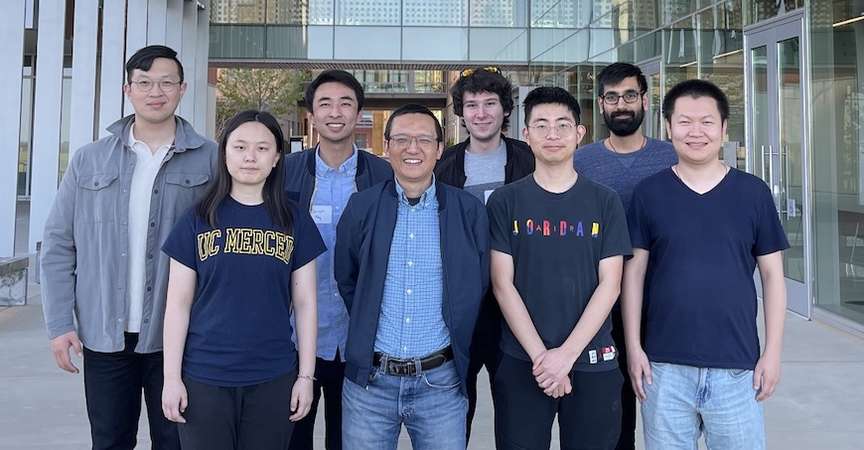
UC Merced Computer Science and Engineering Professor Xiaoyi Lu is leading a collaboration that earned a $4.35 million grant from the Department of Energy (DOE) to improve machine learning systems.
Lu is partnering with the University of Iowa and Argonne National Laboratory near Chicago to improve the understanding of scalable, federated, privacy-preserving machine learning. The project was among five aimed at distributed resilient systems in science awarded a total of $40 million in funding from the DOE.
"Scientific research is getting more complex and will need next-generation workflows as we move forward with larger data sets and new tools spread across the U.S.," Ceren Susut, DOE acting Associate Director of Science for Advanced Scientific Computing Research, said in a news release announcing the awards. "This program will explore how science can be conducted in this new environment - where tools and data are in multiple places but must be integrated in a high-performance fashion."
According to his abstract, Lu's proposal "aims to address the critical need for a scalable and resilient federated learning simulation and modeling system in the context of edge computing-related scientific research and exploration."
Federated learning is a decentralized approach to training machine learning models, increasing data privacy. Rather than requiring an exchange of data from client devices to global servers, raw data on edge devices is used to train the model locally. Edge devices are hardware, such as routers, that physically connect devices and also enable traffic between networks.
"Federated learning is becoming an essential technique for machine learning on edge devices as the sheer amount of raw data generated by these devices requires real-time, effective data processing at the edge device ends," Lu wrote in his abstract. "The processed data carrying intelligent information must be encrypted for privacy protection, making federated learning the best solution for building a well-trained model across decentralized smart edge devices with secure and efficient data-sharing policies."
Lu and his partners propose a scalable and resilient federated learning simulation and modeling system, called SR-APPFL, which leverages and extends the capabilities of Argonne Privacy-Preserving Federated Learning (APPFL).
APPFL allows users to leverage implemented privacy-preserving algorithms, implement new algorithms, and simulate and deploy various federated learning algorithms with privacy-preserving techniques, according to research published by Cornell University.
"The proposed system offers substantial benefits to researchers and developers working on real-world federated learning systems," Lu wrote. "It provides them with a valuable platform for conducting proof-of-concept implementations and performance validation, crucial steps prior to deploying and testing their machine learning models in real-world scenarios. Furthermore, the proposed system will have scientific impacts on DOE-mission-based applications such as scientific machine learning and critical infrastructure, where data privacy challenges are significant concerns."



